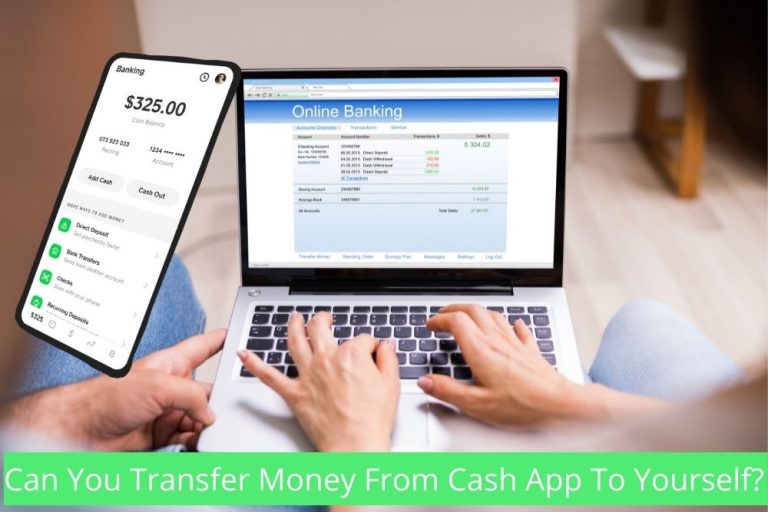![Someone sold me a car with a lien on it [What To Do] 2 Someone sold me a car with a lien on it](https://milvestor.com/wp-content/uploads/2021/11/Someone-sold-me-a-car-with-a-lien-on-it.png)
When you have a lien on your vehicle, the lienholder has complete legal ownership of the title. So, what do i do if someone sold me a car with a lien on it?
Someone Sold Me a Car with A Lien on It: What Does It Mean?
An automobile lien provides the lienholder. Usually, your auto loan lender, legal ownership of your vehicle until the loan is paid off. Unfortunately, this implies that you won’t be able to sell or transfer ownership of your automobile until the lien is paid off.
Keynote:
Contingent on how you intend to sell a vehicle with a lien, the procedure is different. While pledging to a dealership may be less of a bother, selling to a private buyer will likely net you more money.
Whether you sell your automobile privately, though, you’ll need to contact your lienholder to see if the buyer will be able to pay off your remaining loan balance, and you’ll need to locate a buyer who is willing to go through with that plan.
It might be challenging to sell an automobile with a lien, primarily selling to a private buyer. Always check with your lienholder to determine whether it’s permissible under your contract if there’s a “best route” of sorts for closing the transaction and transferring the title.
How Do I Remove a Lien from A Car Title?
If you want to remove the lien on your car, you can apply the following tips.
1. Request that the lien be removed from the vehicle.
Although the process is usually quick, confirm by looking at the car title or calling your DMV. In addition, you can search for liens depending on your VIN at a particular state DMVs.
Any current liens will be visible on a vehicle history report. Give the lienholder five full business days to sign the lien over to you as the sole legal owner if you just paid the lienholder back.
Those who also give you a lien release form acknowledge that you have paid the debt and that they no longer have such a claim on the car.
State regulations determine what you receive and when you receive it. To learn more about your rights, contact your state DMV or your lender.
2. Arrange a meeting with the Lien Holder and the Buyer
You may be able to arrange a meeting between your lienholder and the buyer to sign over the title in some cases. If your lienholder is a dealership, service station, or title loan lender, you might be more inclined to use this alternative. You may still have to deal with the DMV, but it becomes the buyer’s responsibility once the car is registered.
3. Pay off the lien
What are your debtors, and how much do you owe them? When it comes to removing a lien from your title, this is a critical question. You won’t be able to do anything else until the loan is repaid. If your car has a lien on it, the lienholder is the rightful owner and has rights, such as the right to take back your vehicle if you do not even pay up.
It’s possible that you won’t have to repay the loan because the buyer will assume the lienholder’s debt. However, once you sell to a business rather than a private buyer, it is more frequently the case.
How Do You Check if A Vehicle Has a Lien?
Knowing if there is a lien on a car beforehand is essential. This knowledge particularly applies when you want to buy a used car.
- Consult your province’s transit authority. In addition, some state DMV websites allow you to search for liens online using your car’s vehicle identification number (VIN).
- To find this 17-digit number, all you have to do is look at the lower left side of the windshield, under your trunk, on the engine, or probably next to the driver’s side door. It could also be found on the registration card and insurance documents for the vehicle.
- Examine the car title if you have it. For example, if the vehicle has a lien, the lienholder may be listed on the title.
- Get a report on the vehicle’s history. Your vehicle information report can show you the car’s lien history, previous owners, and significant damage, all of which are important to know if you plan to buy it.
- The National Motor Vehicle Title Information System, Autocheck, and Carfax are some companies that offer vehicle history reports.
How Do Liens Work?
When a borrower fails to meet the terms of a loan or contract, a creditor has the legal right to seize and sell the collateral property or asset of the borrower.
A liened property cannot be sold without the lien holder’s permission. A floating lien is a lien on the unfixed property such as inventory.
Liens, such as a lien on a property for a loan, can be voluntary or consensual. Involuntary or statutory liens, on the other hand, occur when a creditor seeks legal action for nonpayment, and a lien is placed on assets such as property and bank accounts as a result.
How to Sell a Car with A Lien
You can and should negotiate the payment of liens as part of your sales contract when buying or selling a car privately.
If you really want a car but it has a mechanic’s lien on it, you can write two checks: one to remove the lien and another to the seller for any additional money over and above the lien amount.
When selling a car with a lien privately, you should disclose the lien up front and inform the buyer of who must be paid in order for them to receive a clean copy of the title.
How Many Types of Lein Are There?
Because you’re agreeing to the contract and giving the lender the right to your property if you don’t meet the contract agreements, the lien placed on your car when you sign the auto loan contract is considered a voluntary lien.
- Judgments Liens: Judgment liens are court-ordered liens that can be sought by any creditor who believes that taking you to court for nonpayment is necessary.
- Tax liens: The Internal Revenue Service (IRS) can place a tax lien on your property if you don’t pay your taxes. This means that your assets, including a car, can be liquidated to pay back the government.
- Mechanics’ Liens: Though a mechanic can place a mechanic’s lien on your title, this term is used to refer to any lien placed on your vehicle for failure to pay for a service.
- Bank lien: When a person obtains a loan from a bank to purchase an asset, a lien is frequently granted. For example, if a person buys a car, the seller is paid with borrowed funds from the bank. The bank would then be given a lien on the vehicle. If the borrower fails to repay the loan, the bank may foreclose on the property, seize the vehicle, and sell it to repay the debt.
Is It Illegal to Sell a Car You Owe Money On?
Selling a car on finance is legal, but it may be tricky, and there are a few things to keep in mind beforehand.
By following due procedure, you will be legally shielded from being held accountable for any concealed loans or financing that you may discover later, and you will not have to worry about waking up one day to find that your vehicle has been repossessed. In addition, you will have a clear title to the car with no liens or outstanding debts.
Note:
Furthermore, if you’ve been experiencing problems selling or exchanging your car at a dealership because you owe more than it’s worth, they may need to hold off until you’ve built up some equity.
This can be accomplished by making additional installments or paying more than the minimum monthly payment. First, however, find out if your lender charges a prepaid late fee beforehand.
Is a Lien Title Bad?
No, a lien title isn’t necessarily wrong. When a lien is placed on a vehicle’s title, it usually means that the car has an outstanding loan. If there is already a lien on the vehicle, the lender will not use it as collateral for the loan.
Furthermore, if you buy a car outright without taking out a loan and there is an outstanding lien on the vehicle, it may be repossessed from you without your knowledge. Somewhat more, if the seller fails to meet the terms of their loan, it may be put up for sale.
How Do I Check if A Title Is Clean?
Finding your physical certificate of title, which should have been given to you when you purchased the vehicle, is the simplest way to verify that you have a clean title on your car.
Sidenote:
You can also type your vehicle’s VIN into websites like CARFAX and AutoCheck, in addition, to checking in with your local DMV. The above online tools will verify the title for a fee. Someone unsure about the validity of their physical title can compare the relevant data about the physical memorandum to the information provided on these sites on the internet.
If the physical title says it’s in good condition, that’s usually all you need to know. If you don’t know where your vehicle title is or have doubts about the validity of your credentials, you can use other procedures to validate that the identification is valid. Another method is to ascertain the VIN and run a used car vehicle history report to ensure that your vehicle has a clean title.
Does Transferring a Car Loan Hurt Your Credit?
Your payment history is directly affected when you request a car loan transfer to someone other than a refinancing creditor.
Your car loan lender will report to credit bureaus that you have not paid your outstanding balance in full. It will only take 90 days for this negative impact on your credit rating to become apparent.
When applying for a new credit card or a mortgage, a significant drop in your credit score will force you to accept high-interest credit terms.
Is a Lien the Same as A Loan?
Any asset sale proceeds will go to a lienholder/lien holder who must approve any property change. You retain ownership of the asset, however.
Whenever anyone owes you money on the condition that you repay them, this is a loan. For example, when you mortgage something, the lender places a lien on it and has the license to transfer it if you miss a payment on your loan payments.
Can I See Who Owns a Car by Vin Number?
A vehicle’s VIN can also be used to determine who owns it. This information is protected as a privilege and even a right by the vehicle owner in some places so that no one can conduct this research using valid and legal methods.
To get this information, you’ll need to follow a few steps and sign a few forms. The owner’s name is usually only revealed when there has been a crime in which the owner’s car was implicated, and only with the permission of the responsible party.
- What Does Pay Distribution Mean For Direct Deposit? - July 5, 2025
- The Evolution of Stablecoin Pegs: Exploring Challenges and Risks - July 5, 2025
- Does Meijer Take Google Pay? - July 5, 2025



